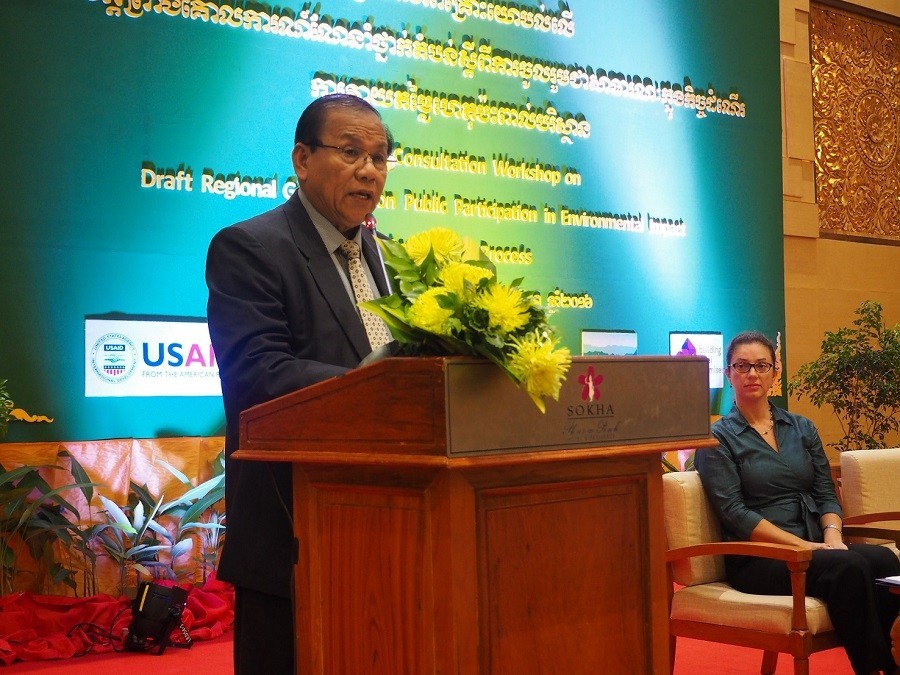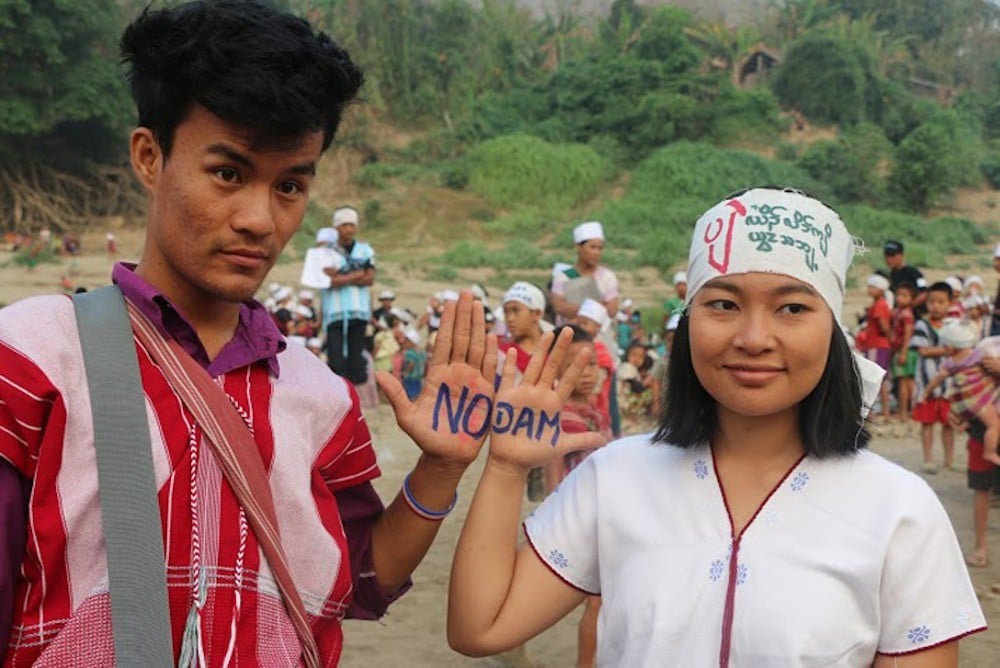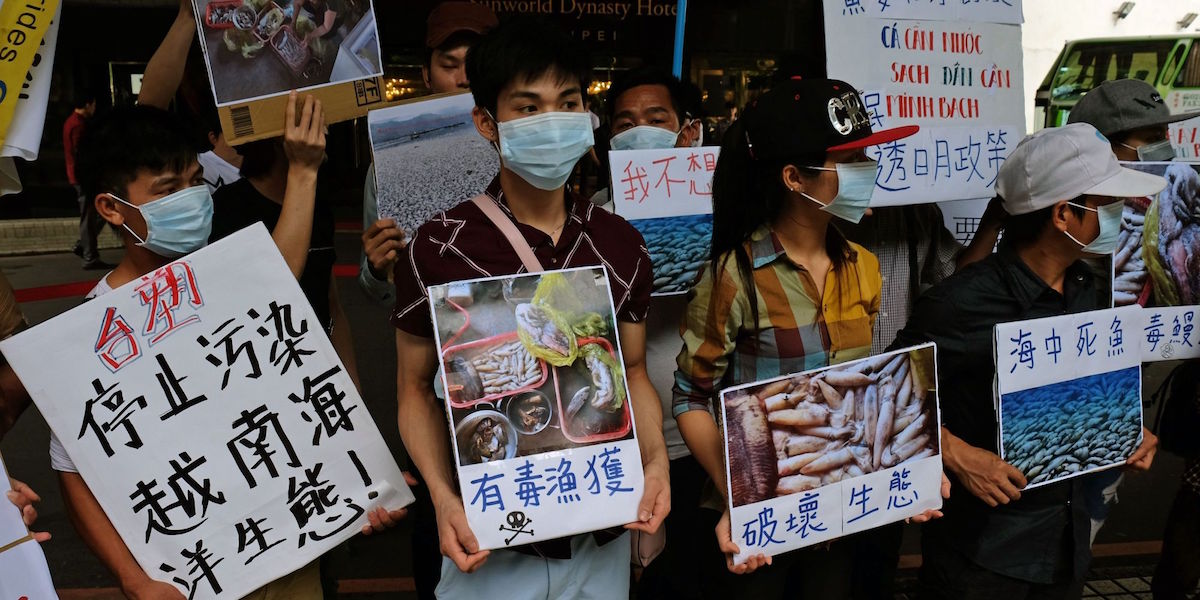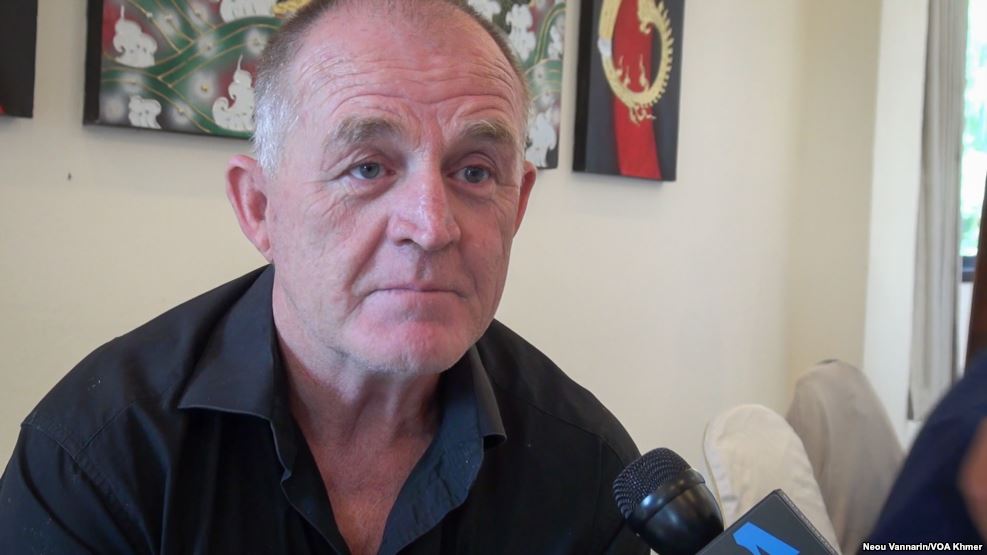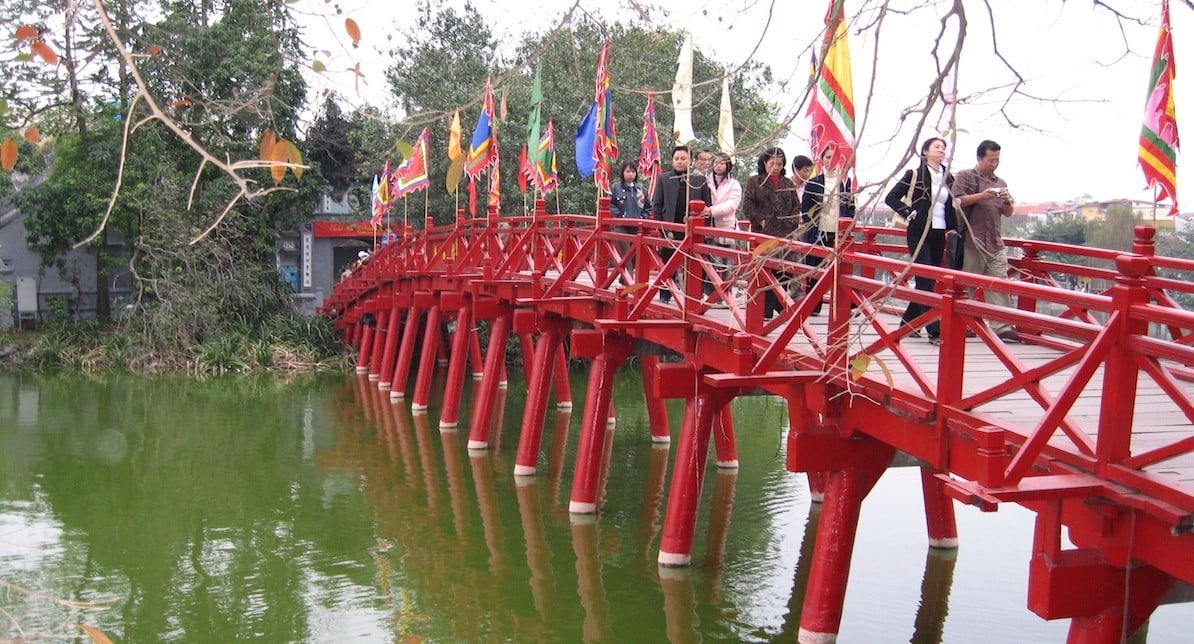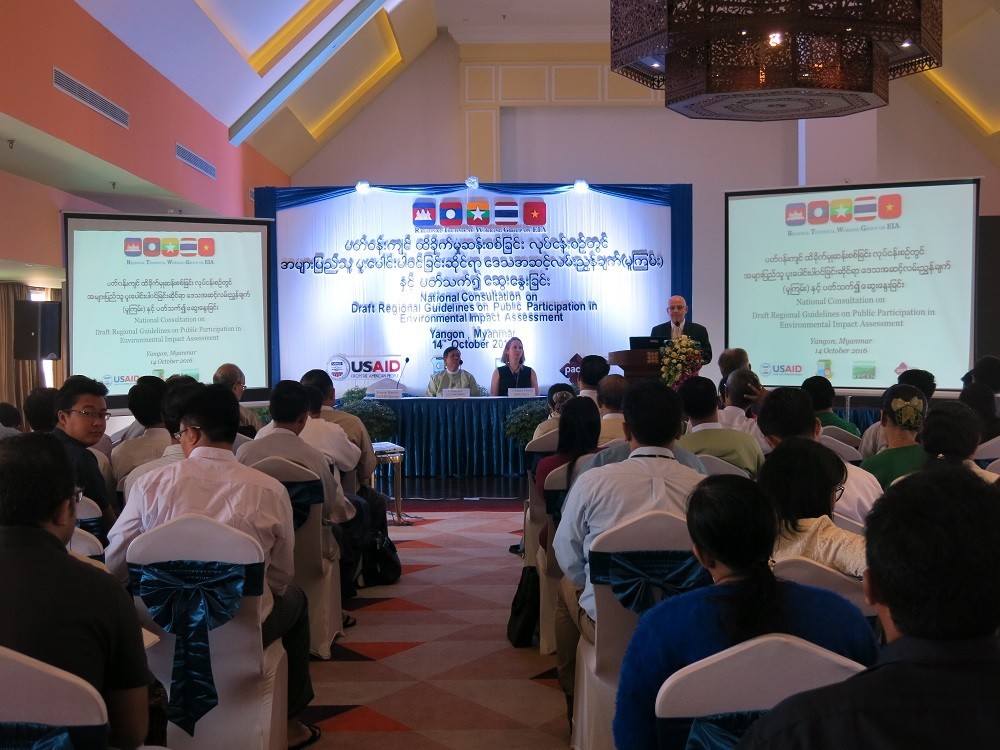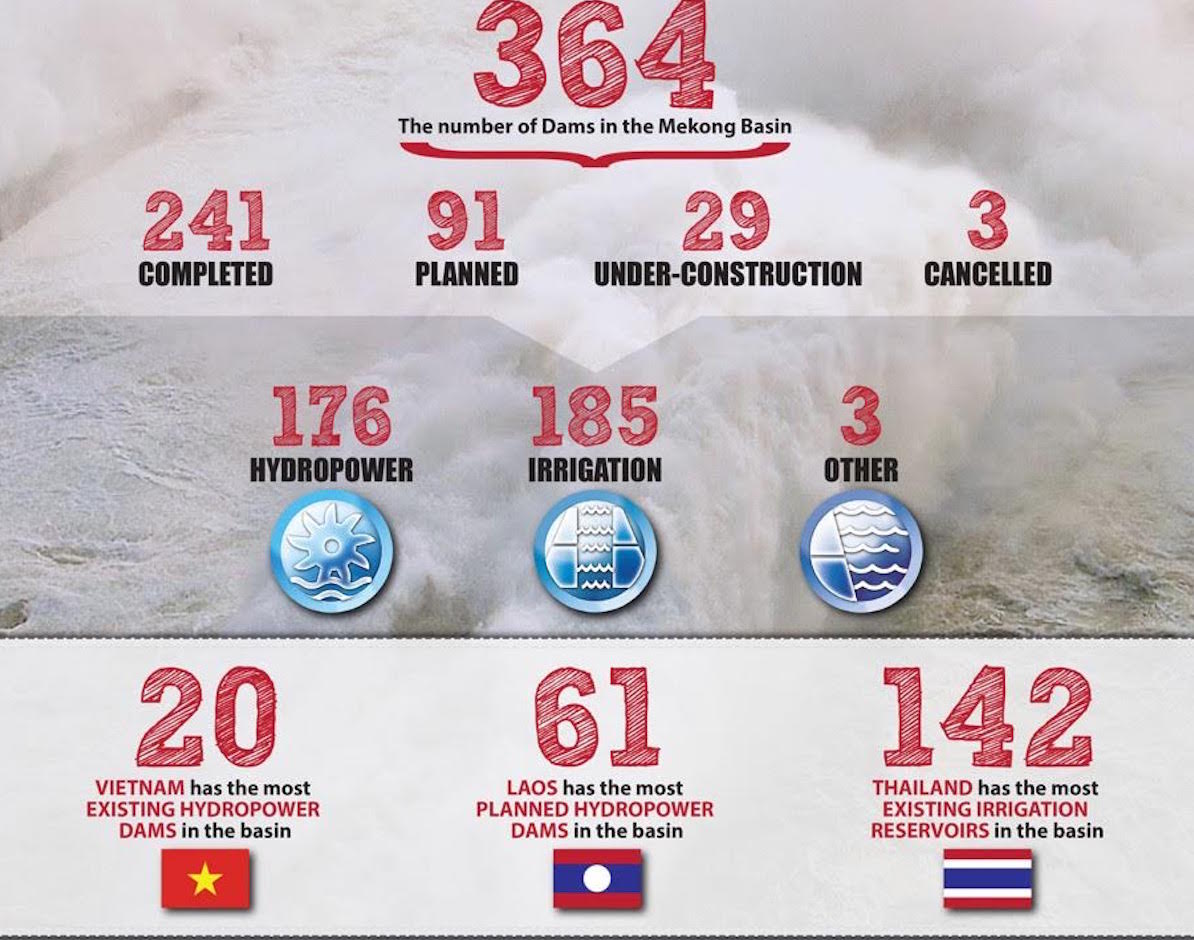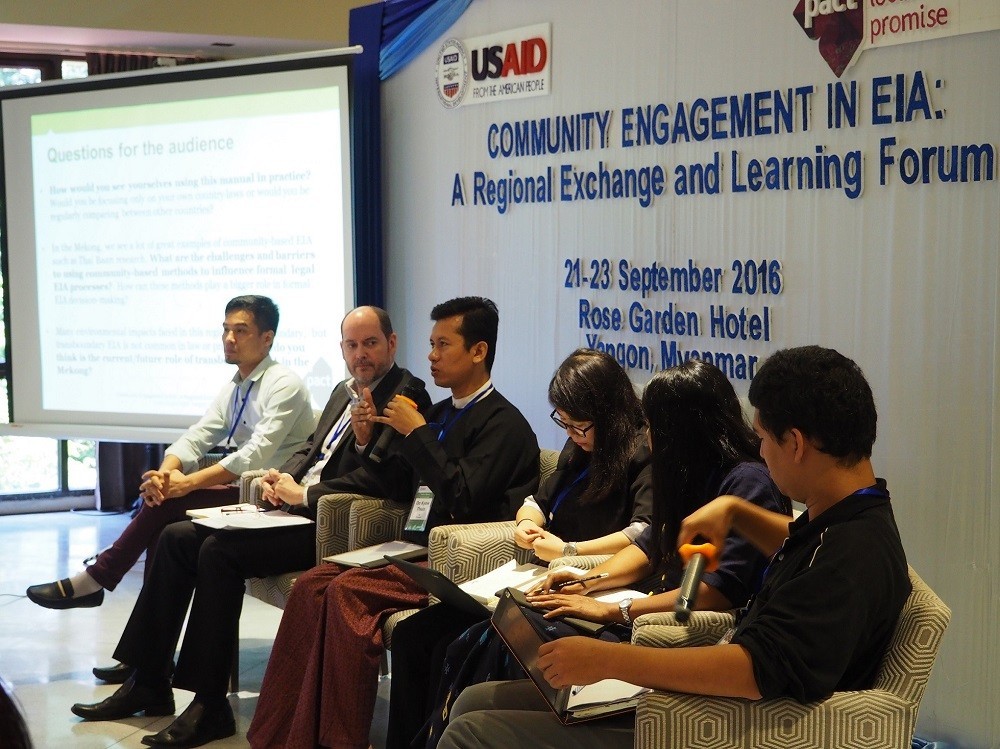In a landmark move for public participation in Cambodia, the government and non-government organizations jointly held public consultations on regional guidelines to ensure Environmental Impact Assessment (EIA) processes involve affected communities.
Category: Article
Coal Plants Make Up Half of Vietnam Goverment’s Blacklist of Polluting Projects NGOs Point Out Urgent Need for Action
Following growing public alarm triggered by a series of major industrial pollution disasters the Ministry of Industry and Trade last week flagged 28 projects – including more than a dozen coal plants – as warranting “special monitoring” due to the risks they pose to the environment. The coal plants, which involve the state-owned power utility Electricity of Vietnam (EVN) or Vietnam Oil and Gas Group (PVN), have become flashpoints for public alarm due to widespread pollution affecting public health and other industry sectors such as farming, fishing and tourism.
Activist group opposes all dams on Thanlwin River
The Thanlwin River Watch Alliance said it will oppose any dam project on the Thanlwin River at a forum held on Monday in Taunggyi Township, Shan State. The alliance is composed of residents of Shan, Kayah, Kayin and Mon states and monitors projects on the river, which flows through the four states. Ethnic minority representatives and members of civil society organisations attended the forum. The group also launched a nationwide signature campaign that day.
Landmark public consultations on infrastructure development held in Vientiane
A landmark public consultation in Laos on the draft Regional Guidelines on Public Participation in Environmental Impact Assessment (EIA) was held in Vientiane. More than 100 representatives from private sector companies, communities, non-profit associations, international organizations, government agencies, environmental impact assessment consulting firms gathered today at a public consultation in Vientiane to provide feedback on draft Regional Guidelines on effective Public Participation in Environmental Impact Assessment processes as a way to ensure these processes involve communities.
In Vietnam, telling the truth is criminal ‘propaganda’
On Oct. 10, police in the south-central province of Khanh Hoa arrested a popular blogger, Nguyen Ngoc Nhu Quynh, 37, who writes under the pen name Mother Mushroom. She is co-founder of a network of independent bloggers who often find themselves in the crosshairs of a regime that strictly controls the news media and does not tolerate dissent. Radio Free Asia quoted the network as protesting that Ms. Quynh is an “activist who has advocated for human rights, improved living conditions for people, and sovereignty for many years.”
To Fix the Mekong, Just Look at the Evidence: Q&A With Dr. John Ward
Dr. John Ward is a research scientist at the Mekong Region Futures Institute specializing in integrated natural resource management. He spoke with VOA’s Neou Vannarin about the future of the Mekong, the effects of climate change, hydropower development, and the impact on the environment and people of the region.
Vietnam playing ‘key Mekong sub-region role’
VIETNAM has been making practical contributions to turning the Mekong sub-region into a dynamic and prosperous economic area via two crucial cooperation frameworks. That is according to the country’s Deputy Prime Minister and Foreign Minister Pham Binh Minh, who spoke before meetings of those cooperations, the 8th Cambodia-Laos-Myanmar-Vietnam Summit (CLMV-8) and the 7th Ayeyawady-Chao Phraya-Mekong Economic Coopera-tion Strategy Summit (ACMECS-7) which will be held in Hanoi on October 25 and 26.
Myanmar government and civil society hold landmark consultations on public participation in infrastructure development
Representatives from government and civil society jointly held the first-of-its-kind public consultations in Yangon to solicit feedback on draft Regional Guidelines on effective Public Participation in Environmental Impact Assessment processes. When finalized, the guidelines will help ensure that the voices of local people are heard about large-scale infrastructure development projects, such as dams, mines, power plants, and industrial zones, planned in their communities.
From dams to basins: mapping across scales
t the end of June 2016, WLE Greater Mekong published a series of maps identifying dams on the Irrawaddy, Salween, Mekong, and Red rivers and their tributaries. The maps cover existing dams, dams under construction, planned dams, and cancelled dams; both irrigation dams and hydroelectric dams are mapped, as long as they have a reservoir size of at least 0.5 km2 and/or have an installed capacity of at least 15 megawatts (for hydroelectric dams).
The following is the first half of an interview that took place on 8 July 2016, between Dr Kim Geheb—the WLE Greater Mekong Regional Coordinator — and the editor of Thrive. It is being published here in anticipation of the Great Mekong Forum on Water, Food, and Energy.
Regional NGOs Convene in Myanmar to Improve Community Involvement in Infrastructure Decisions
This week, 50 representatives from non-governmental organizations (NGOs) across the Mekong region met in Myanmar to share successes and challenges in effectively involving local communities in environmental impact assessment processes. At the “Community Engagement in Environmental Impact Assessment: A Regional Exchange and Learning Forum” in Yangon, participants explored approaches to helping communities constructively engage with businesses and government to ensure sustainable and equitable development in the context of increasing infrastructure investment in the region.


